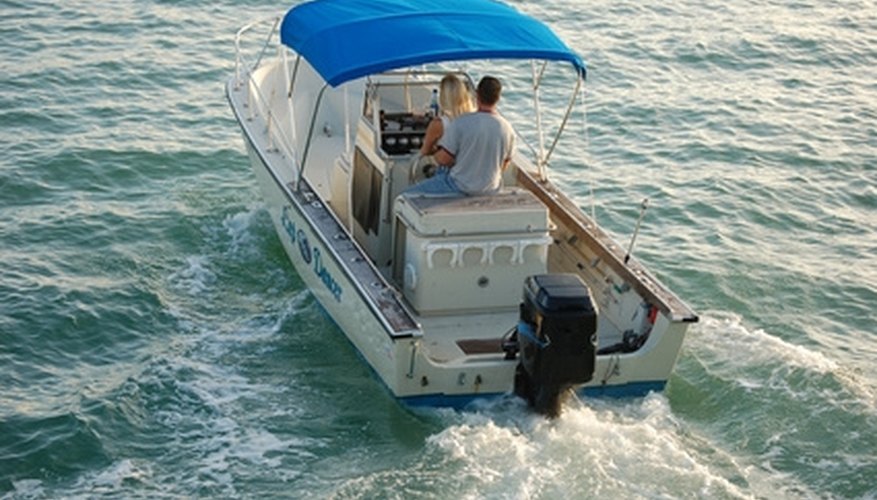
With its many lakes and rivers, Indiana provides a great venue for boating. Whether fishing, sailing, skiing or simply floating along, boaters in the state are required to follow several regulations. These regulations are state laws, and they are enforceable by fines and possible jail time.
Boat Occupancy
Indiana boating regulations make it illegal to exceed maximum capacity for a watercraft. Vessels feature a capacity plate, usually found near the operator position, which lists the maximum weight and maximum occupancy of the boat. Boaters can be fined if they exceed these maximums.
Registration
Indiana requires all vessels operating on public waters in the state to be registered. This requires an annual set fee. Boat owners must apply to any Bureau of Motor Vehicles licensing branch to obtain a certificate of registration. This certificate must be carried on the boat at all times and must be accessible for inspection by an enforcement officer. Registration information must be updated if you change your home address or if ownership is transferred. While all vessels operating on public waters in Indiana must obtain an Indiana registration, large recreational vessels with Coast Guard registration do not need to display the Indiana registration number. Along with registration, boats must include excise tax decals showing that the boat owner has paid the necessary tax during registration. The excise tax amount is based on the value of the vessel when new. The value is reduced by 10 percent each year up to a 50 percent reduction from the original value. All registered boats must have a certificate of title unless they are valued at less than $3,000 or were acquired before January 1, 1986.
Operating Laws
Indiana boating laws dictate what is and is not allowed on the water. Boats are subject to the unlawful operation law. This law makes it illegal to endanger a person or property by operating a boat in a dangerous manner. The law also applies when a boater interferes with another person's lawful use of public water. Department of Natural Resources officers can issue tickets for the unlawful operation of a boat in Indiana's public waters, and some violations can result in points being added to an operator's driver's license. Examples of reckless and illegal operation include driving more than 10 mph between sunset and sunrise and weaving through congested traffic. It is also illegal to operate a boat while intoxicated. You can be arrested if your blood-alcohol content is 0.08 percent or greater.
Flotation Devices
The most important equipment regulation related to boating in Indiana is one that spells out the need to carry personal flotation devices, often called life vests. All vessels must carry one Coast Guard-approved personal flotation device for each person aboard. Vessels 16 feet in length and longer must carry one Type IV PFD. A Type IV flotation device is one that can be thrown. They often come in cushions or ring buoys. It is not designed to be worn. Instead, it is to be held. Furthermore, every person aboard a personal watercraft must wear a life vest.
References
Writer Bio
Based in Central Florida, Ron White has worked as professional journalist since 2001. He specializes in sports and business. White started his career as a sportswriter and later worked as associate editor for Maintenance Sales News and as the assistant editor for "The Observer," a daily newspaper based in New Smyrna Beach, Fla. White has written more than 2,000 news and sports stories for newspapers and websites. He holds a Bachelor of Arts degree in journalism from Eastern Illinois University.



